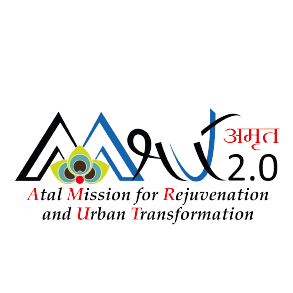New Delhi: The responsibility for managing urban floods lies with State Governments, Urban Local Bodies (ULBs), and Urban Development Authorities. The Central Government, recognizing the need for comprehensive solutions, has taken several initiatives to address urban flooding challenges, with a focus on metro cities.
The Fifteenth Finance Commission has recommended an allocation of Rs. 2,500 Crore under the National Disaster Mitigation Fund (NDMF) to develop integrated flood management solutions for three metro cities – Mumbai, Chennai, and Kolkata. Each of these cities will receive Rs. 500 Crore. Additionally, four cities – Bengaluru, Hyderabad, Ahmedabad, and Pune – will receive Rs. 250 Crore each for urban flood prevention.
The Central Government has approved the Integrated Urban Flood Management project for the Chennai basin, allocating Rs. 561.29 crore, with a central contribution of Rs. 500 crore.
Key Steps taken by the Central Government:
- National Guidelines for Urban Flooding Management: Issued by the National Disaster Management Authority (NDMA), these guidelines provide a proactive, participatory, and well-structured approach for disaster management plans at various levels.
- Urban and Regional Development Plans Formulation and Implementation (URDPFI) Guidelines, 2014: Issued by the Ministry of Housing and Urban Affairs (MoHUA), integrating NDMA guidelines for the guidance of States/UTs.
- Model Building Bye Laws (MBBL), 2016: Formulated by MoHUA, these laws mandate the inclusion of rainwater harvesting proposals for plots of 100 sq.m. or more.
- Standard Operating Procedures (SOP) for Urban Flooding, 2017: MoHUA has laid down specific actions to be undertaken by ULBs, District Administration, and State Governments.
- Manual on Storm Water Drainage Systems, 2019: Published by MoHUA to provide guidance on sustainable design, planning, and management of stormwater drainage systems.
- Atal Mission for Rejuvenation and Urban Transformation (AMRUT): Stormwater drainage is a component, with ₹2,969 crore (4%) allocated. 750 projects worth ₹1,883 crore have been completed, eliminating 3,445 waterlogging points.
- AMRUT 2.0 Scheme: Rejuvenation of water bodies and wells, including rainwater harvesting through stormwater drains, is a key component.
These initiatives underscore the Government’s commitment to developing resilient urban infrastructure, ensuring the effective management of stormwater, and mitigating the risks associated with urban floods.





